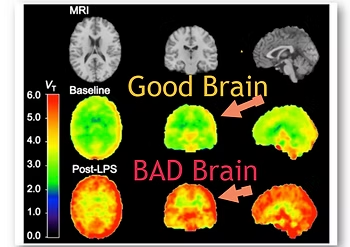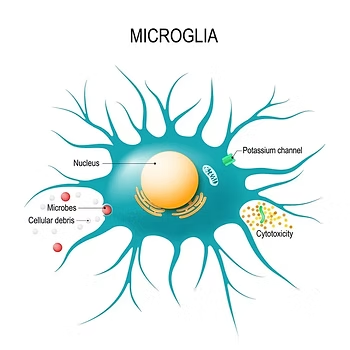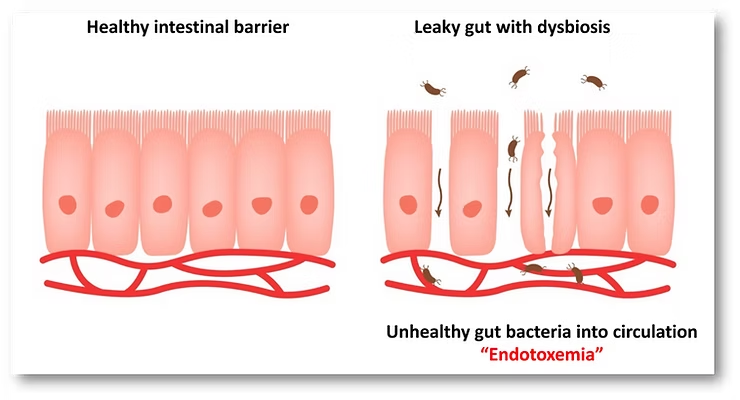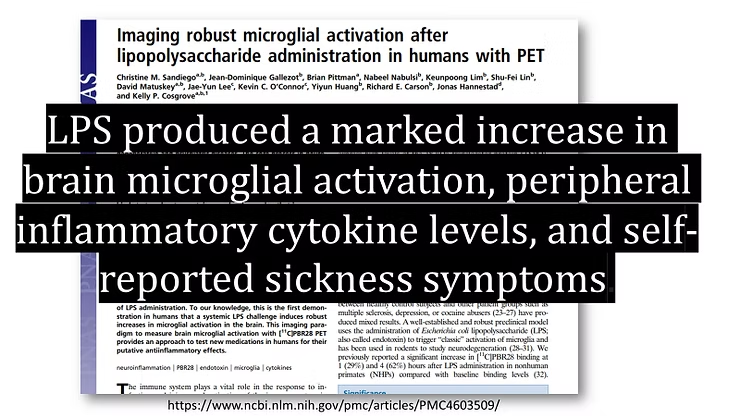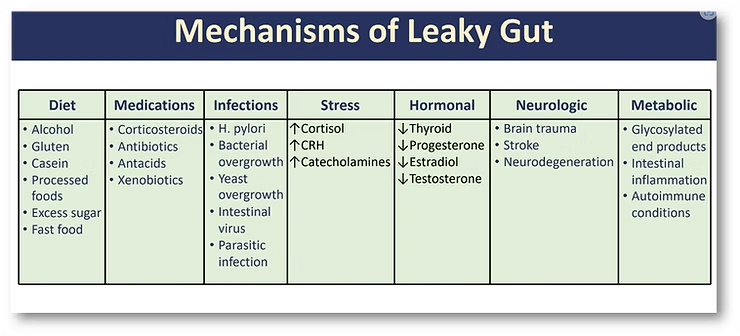There are many people today who are suffering anxiety, depression, panic attacks, and more. Unfortunately, when they go into the conventional medical system the only real solution they are presented with is to take some kind of drug. These medications often come in the form of antidepressants or anti-anxiety medicines.
There are a number of functional medicine solutions to treating anxiety and depression as well, all of which are backed by research. In a functional medicine treatment plan, we would look at your entire bodily systems as a whole to figure out why you are experiencing these symptoms. Often, anxiety, depression, and panic attacks are neurological problems which are linked to one, or multiple of your body’s many systems. Figuring out these “weak” links can provide us with an idea of how to treat your problems without having to resort to medication.
The research I am about to show you has helped hundreds of people recover from anxiety and depression.
The Vocabulary
Before we go too much further, we need to discuss some of the vocabulary. Microglia are the active immune defense (or white blood cells) that work in your brain. These cells float through the blood system in the brain searching for anything needing to be removed.
Another word we need to understand is lipopolysaccharides (LPS). Very simply put, this is bacteria poop. Dr. Perlmutter, a well-known and widely published doctor, wrote in his book The Brain Maker, “If there were ever a clear biological villain that flips on the inflammatory pathways in the body, it would be the lipopolysaccharide.” We also call these types of compounds “endotoxins.”
LPS and Your Gut
Looking at your intestinal system, the barrier between your bloodstream and the digestive system is only one cell thick. If there are gut problems such as bloating, gas, diarrhea, etc., then you likely have what we call a “leaky gut.” Essentially, this means there are small holes in this barrier.
Approximately 80-90% of your immune system is located in your digestive tract, which is 36 feet long. With a leaky gut, the bacteria that are normally healthy and helpful in your digestive system can leak into your bloodstream. Here they excrete waste, and cause you to have a wide range of health issues including (but not limited to) anxiety and depression.
The Research
Microglial Response and Inflammation
Looking at MRI scans, we can tell when people suffer from anxiety and depression. A typical colorized MRI scan can show us what a “normal” brain looks like. In the attached photos it has a lot of green (which is good). Brains of people suffering from anxiety or depression often show up with lots of red, signaling inflammation. This means we can see a physical response in the brain to an otherwise completely mental or emotional condition.
Additionally, we know what LPS looks like in the system. Because of this, we can specifically look for LPS and track its link to some of these mental/emotional conditions.
During one study, patients had MRIs taken when they had low levels of LPS in their systems. After these scans, they were injected with LPS, and scanned again. After being injected with the endotoxin, their brains lit up with significant signs of inflammation.
This response was due to the activation of their brains’ microglial (immune) cells. This caused inflammation, which in turn caused symptoms of depression and anxiety. Additionally, inflammatory markers around much of the rest of the body were noted, and patients reported symptoms of sickness, including anxiety and depression.
Leaky Gut and Depression
Another study showed a strong link between depression and leaky gut. This study also linked the problems of leaky gut to inflammation caused by the presence of LPS in the bloodstream due to intestinal mucosal dysfunction.
In other words, patients with leaky gut reported higher levels of mood disorders than patients who had healthy digestive tracts.
The authors of this study wrote, “There is now evidence that major depression (MDD) is accompanied by an activation of the inflammatory response system (IRS) and that pro-inflammatory cytokines and lipopolysaccharide (LPS) may induce depressive symptoms.”
If your anxiety and mood disorders are being caused by a leaky gut, then using a medication that targets your brain functions will only have a minimal effect.
How to Tell If Your Depression and Anxiety Are Gut-Related
If you suffer from depression and/or anxiety, it may be difficult to tell if your symptoms are purely neurological or linked to your digestive tract.
Typically speaking, patients whose depression and anxiety are linked to their gut health will also experience symptoms such as:
– Increased reactions to food
– Chronic gastrointestinal symptoms
– Diarrhea
– Constipation
– Abdominal pain
– Bloating
– Irritable Bowels
If you also have to take any kind of medication to treat digestive issues such as heartburn, you may have mood disorders linked to your gut health.
Research is also showing that as many as 50% of people who have leaky gut or gastrointestinal issues are not manifesting symptoms with their digestive tract. In other words, you may have a leaky gut or some other digestive issue, but your symptoms only appear in other systems. Patients experiencing non-gastrointestinal symptoms may manifest their symptoms in the following ways:
– Chronic pain
– Chronic fatigue
– Multiple food sensitivities
– Mood disorders
Single Cell Barriers
Our blood-brain barriers and blood-brain barriers are designed almost the exact same way. Imagine this barrier to be a brick wall that is one brick thick. It can certainly be very strong, and keep everything out when done well.
However, when the cement between the bricks begins to fall apart the entire wall is significantly less effective. Small things may make it through those holes, or eventually entire bricks may fall out. Large gaps allow more things to pass through.
While our barriers may not be literal brick walls, they function much the same way. They are intended to keep different components that our bodies need, where our bodies need them to be. When those barriers are not working effectively it can cause a myriad of issues all throughout the entire body.
Possible Causes of Leaky Gut
Leaky gut can be caused by a wide range of issues, which can make it very hard to diagnose. It is therefore vital to try and live a healthy lifestyle to limit the overall possible causes of leaky gut you may be experiencing, and thus limit your depression and anxiety.
Leaky gut may be caused by any of the following issues:
Diet
– Alcohol intake
– Gluten sensitivity
– Casein sensitivity
– Intake of processed foods
– Excess sugar
– Lots of fast food
Medications
– Corticosteroids
– Antibiotics
– Antacids
Infections
– H. Pylori
– Bacterial overgrowth
– Yeast overgrowth
– Intestinal virus
– Parasitic infection
Stress
– High cortisol
– High CRH levels
– High levels of catecholamines
– Low thyroid
– Low progesterone
– Low estradiol
– Low testosterone
Neurological
– Brain trauma (including concussions from long ago)
– Stroke
– Neurodegeneration
Metabolic
– Glycosylated end products
– Intestinal inflammation
– Autoimmune conditions
The Bottom Line
This may be daunting. It looks like a lot to keep track of and that can be daunting to try to tackle. However, it also means you have a lot of different possibilities to get better. There are many opportunities for us to help you get back to health, and using a functional medicine approach we can put you on the path to healing and happiness.
Are You Tired of Feeling Anxious and Depressed?
Today, folks all around the world are dealing with feelings like sadness, fear, and panic. The doctors often tell them to take pills, like ones for making you feel less sad or scared. But guess what? There are other ways to help you feel better, and they don’t even need those pills!
A New Way to Feel Better, Backed by Science
Looking at Your Whole Body to Solve the Problem
Sometimes, feeling sad and scared isn’t just in your mind. It can be linked to parts of your body. By finding the weak spots in your body, we can figure out how to make you feel better without medicine.
Hundreds of people have already been helped with this research. Want to learn how? Keep reading!
Some Words You Need to Know
- Microglia: Think of these as the body’s superheroes. They work in your brain, always on the lookout for anything that needs to be thrown away.
- Lipopolysaccharides (LPS): These are like nasty little bugs, which Dr. Perlmutter calls a “clear biological villain.” In simple terms, they cause trouble in your body.
What's Going On in Your Gut?
Your Gut and Your Feelings
Did you know that a big part of your body’s defense team lives in your tummy? And if something goes wrong in your tummy, like bloating or diarrhea, it can cause holes to appear in a very thin wall that separates your tummy from your blood.
These holes let bad stuff leak into your blood, and that can make you feel all sorts of yucky things, like anxiety and depression.
The Science Stuff
How the Brain Shows Anxiety and Depression
Using special pictures called MRI scans, scientists can see what’s going on inside your head. If there’s a lot of red, that’s a sign of something bad happening. This bad thing can make you feel sad or scared, even though it’s happening inside your body.
Studies Show Links Between Leaky Gut and Feeling Down
Some studies show that if your tummy is leaking (leaky gut), you may feel down more often. If you’re taking pills for tummy trouble, like heartburn, you might find that your sadness and fear are actually coming from your tummy!
Can You Tell If Your Tummy is Making You Feel Down?
If you have things like:
- Reactions to certain foods
- Stomachaches
- Running to the bathroom too often
- Feeling puffy
- Grumpy tummies
You might find that it’s your tummy making you feel bad.
What’s Behind the Leaky Gut?
It’s like a brick wall, but if the cement between the bricks falls apart, it becomes weak. That’s when problems start, and you might feel down and scared.
What Might Cause the Leaky Gut?
It could be from lots of things, like:
- Eating too much junk food
- Taking certain medicines
- Having certain sicknesses
- Being stressed
- Having something out of balance in your body
The Good News – You Can Get Better!
This might seem like a lot to handle. But don’t worry! There are many ways to help you feel good again. By looking at your body as a whole and finding what’s really causing the problem, we can guide you on the road to feeling happy and healthy once more!
Frequently Asked Questions (FAQ)
Yes. Research shows that addressing root causes like gut health, inflammation, and immune responses can help reduce symptoms of anxiety and depression without relying solely on medications.
Your gut is home to 80–90% of your immune system. When the gut lining becomes “leaky,” harmful substances can enter the bloodstream, causing inflammation that affects the brain and contributes to anxiety and depression.
Common signs include food sensitivities, bloating, diarrhea, constipation, abdominal pain, and irritable bowels. In some cases, mood symptoms may appear even without obvious digestive issues.
Leaky gut can be triggered by poor diet, food sensitivities (gluten, casein), alcohol, medications (antibiotics, antacids), infections, stress, hormonal imbalances, and even neurological conditions.
When bacterial toxins (like LPS) leak into the bloodstream, they activate immune cells in the brain called microglia. This creates brain inflammation, which has been linked to symptoms of anxiety, depression, and fatigue.

